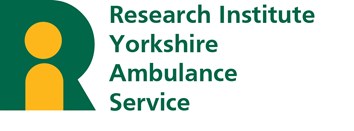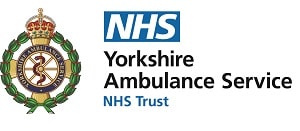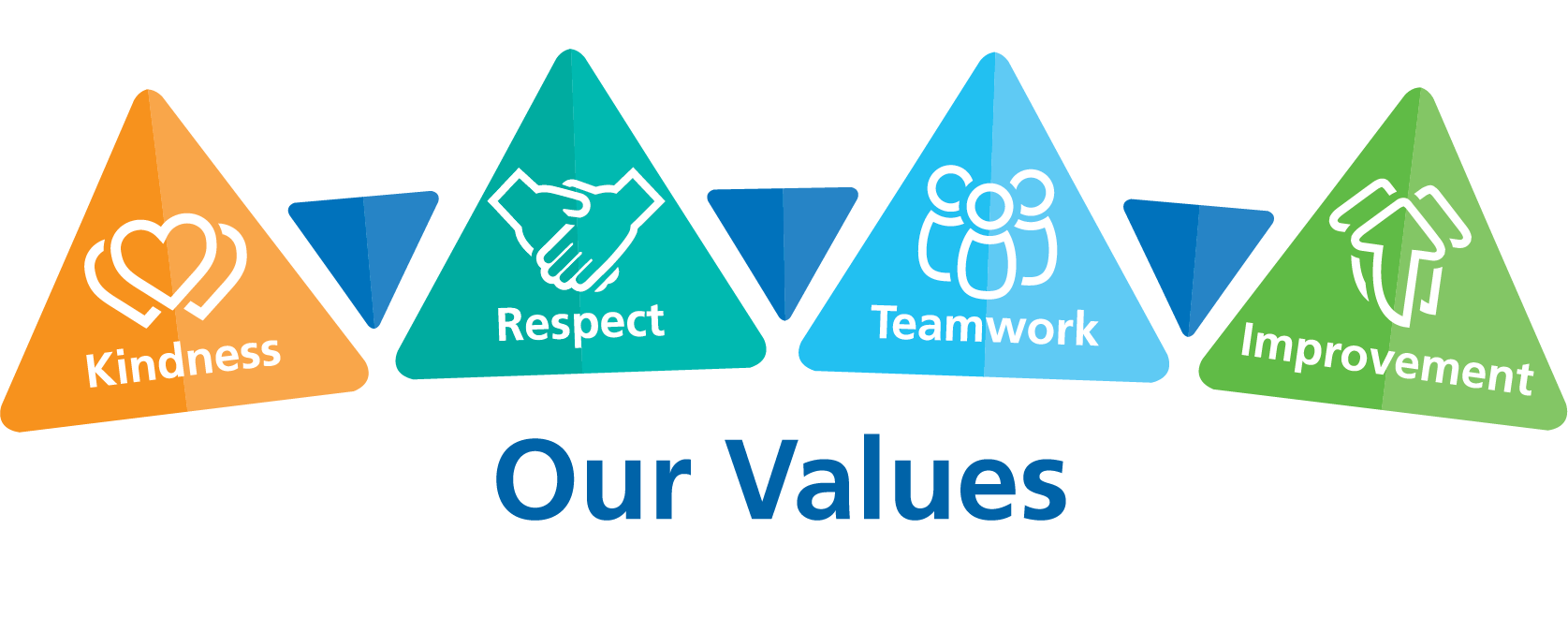Research Support

Yorkshire Ambulance Service has been involved in ambulance research since 2008.
Since that time we have been part of a number of nationally and internationally important research studies which have contributed to changes in clinical practice. We have utilised partnership working, with other NHS ambulance services, NHS trusts and universities to build our capacity and capabilities to take part in high quality research.
We are proud of our arrangements with local organisations that allow us to co-develop our expertise and who support our ambition to grow research for the benefit of patients in our care.
We have continued to deliver important research whilst also developing our staff to be able to lead and direct research that is meaningful for our unique context.
With recruitment into a number of key research leadership posts at the Trust, we launched the YAS Research Institute in October 2023, specifically to support the growth of the culture of research in the organisation and our portfolio of research projects.
The research that we do can have real-world impact, if you would like to find out more please see the table below.
We are always open to new collaborations that support the organisation to innovatively deliver high quality care, and the YAS research Institute can be contacted at yas.research@nhs.net
Details of each year's research activity and publications are published annually in the trust's Quality Account.
| Recently Completed Research | |
|---|---|
| Stressors affecting 999 ambulance call handlers' mental health and wellbeing | A study looking at which stress “triggers” lead to burnout in 999 ambulance call handlers. View the poster and infographic. |
| Breathlessness Relief at Home (BREATHE) | This study aims to evaluate the effectiveness and cost-effectiveness of a paramedic-administered breathlessness crisis intervention for people with acute-on-chronic breathlessness compared with usual care |
| Pandemic Respiratory Infection Emergency System Triage (PRIEST) | The study, led by Professor Steve Goodacre from the University’s School of Health and Related Research (ScHARR) and sponsored by Sheffield Teaching Hospitals NHS Trust, aims to optimise how patients with coronavirus are assessed and treated by the emergency care system in the current pandemic |
| MATTS: Major Trauma Triage Tool Study |
This study aims to develop accurate, acceptable and usable pre-hospital triage tools for use in NHS trauma networks. This will effectively identify patients with the potential to benefit from major trauma centre (MTC) care and optimise over and under-triage |
| PACKMaN - For more information from Warwick Clinical Trials Unit, click here. |
A Study with the University of Warwick Clinical Trials Unit comparing Ketamine and Morphine as analgesia for traumatic injuries. |
| Pre-Alerts - For more information from University of Sheffield, click here | In collaboration with University of Sheffield, this is a multi-package study, exploring the use of pre-hospital pre-alerts and their impact on patients, Ambulance Service and Emergency Department staff |
|
Current Research |
|
| BeSure | A study exploring how ethnic minority groups access health care. |
| STRATUS | A study with the University of Leeds looking at using Freestyle Libre devices to prevent Hypoglycaemic episodes in high-risk individuals living with Type 2 Diabetes. |
| CRASH-4 | CRASH-4 aims to prove whether patients over the age of 50 with mild head injuries benefit from an early intramuscular injection of tranexamic acid (TXA). |
For the most up to date list of publications by Yorkshire Ambulance Service, please go to the Amber Repository.
Research as One
YAS is a partner in Research as One. Members of the public from Bradford and Airedale can join the research registry, where you will be informed about health research that is relevant to you, to see if you would like to participate. There are many different ways you can contribute, from clinical trials or new treatments, to participating in questionnaires and focus groups, or testing medical equipment. You will also receive our newsletter so you can read more about what we are doing.
CUREd+ Research Database
Background
- Everyone is aware that emergency health services are getting busier with waiting times going Delivering high quality patient care is getting more difficult for staff working in these services.
- We want to develop a better understanding of how patient care is being delivered by using data to build a picture of the emergency care system, from making the call for help to being
- We hope that this will help us to understand how to improve care and services for
CUREd+: Centre for Urgent and Emergency Care Research Database
We are conducting research that involves using patient records already held within the NHS and linking them together so we can understand how patients access services and what happens to them after this. The research is being conducted until the end of January 2027. We will examine patient journeys through different health services between April 2011 to March 2023. The types of services we have included are:
For all of England
- Accident and Emergency
- Hospital admissions
- Outpatient care (day treatments in hospital)
- Mental health services
- Demographic data (e.g gender)
- Death Registry Data
and additionally for the Yorkshire and Humber Region
- Ambulance
- NHS 111 services
This means your data could be included.
The Yorkshire Ambulance Service NHS Trust is working with the research team at the University of Sheffield to provide data to be included in the project. This data will include health and care information recorded on 999 phone calls, ambulance journeys and NHS 111 phone calls. However there will be no identifiable information included (such as your name or date of birth). The research team will then link the information together into a database to build a picture of patient journeys when they need healthcare.
No identifiable information will be held in the final Research Database, meaning that it will not be possible to identify you from the data. Only appropriately trained personnel or post graduate students supervised by trained personnel at the University of Sheffield will be able to work on approved projects using the Research Database.
Legal Basis and Opt-out mechanism
The Health Research Authority, on advice from the Confidentiality Advisory Group, has supported the processing of confidential patient information without consent under Regulation 5 of the Health Service (Control of Patient Information) Regulations 2002 (‘section 251 support’). The data held in the Research Database can only be used in research projects that are in the public interest
For further information on the Yorkshire Ambulance Service NHS Trust work with the CUREd+ research data, including how and why the Yorkshire Ambulance Service NHS Trust, process your personal information, how we keep your information secure or if you would prefer your ambulance data not to be included in this Research Database, please email yas.research@nhs.net with your name and date of contact or phone 07748 070 643 before the 1 September 2022.
This is confidential and secure. Withdrawing your data from the study does not preclude you from further studies and will not affect your treatment in any way. Please see the CUREd+ study privacy notice for further information. If you have already set a national data opt-out with the NHS, your data will not be included in the database.
YAS Privacy Policy
Please see the YAS Privacy Policy page for further information: Privacy Policy
COVID-19 related research
This patient notification contains information about the research study TRIM which is looking at how ambulance services responded to 999 calls for suspected COVID-19.
YAS Performance
Performance in initiating and delivering clinical research - national targets for research
The Government wishes to see a dramatic and sustained improvement in the performance of providers of NHS services in initiating and delivering clinical research with the aim to increase the number of patients who have the opportunity to participate in research. Here you will find our most recent quarterly reports to the Department of Health under the ‘Performance in initiating and delivering clinical research initiative’.
The Trust’s clinical trial performance is measured against two national benchmarks to improve the initiation and delivery of all clinical trials approved by the Trust.
- Initiation – it should take no more than 70 days from receipt of valid research application to the recruitment of the first patient to the trial.
- Delivery – for all commercial clinical trials hosted by the Trust, the agreed number of patients should be recruited within the agreed timescale.
The latest performance information for the Trust is available on the NIHR website.
For further information regarding this please contact the Research and Development Department on 01924 584027 or via email at yas.research@nhs.net

